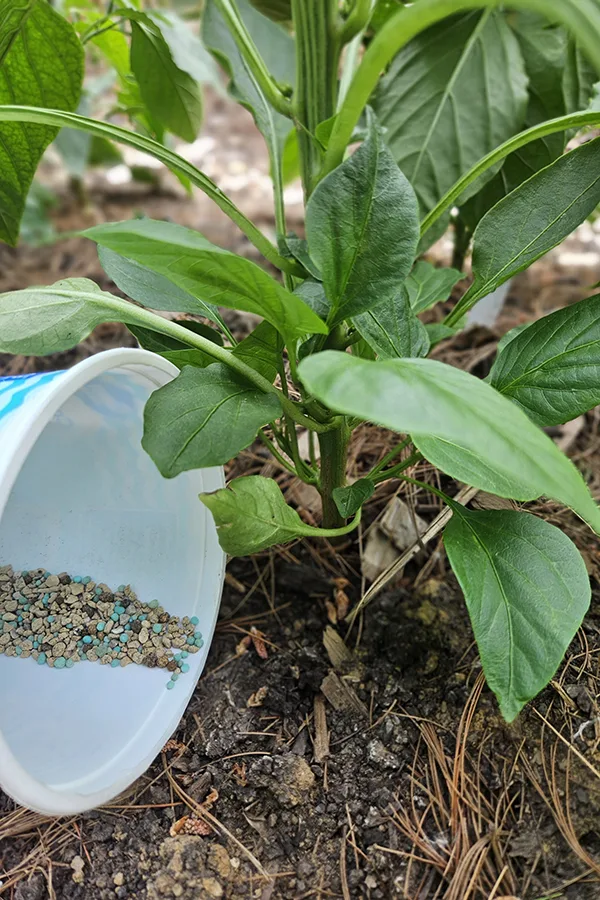Premier Fertilizers for Peppers: Boost Your Harvest Top Quality
Premier Fertilizers for Peppers: Boost Your Harvest Top Quality
Blog Article
Exactly How Fertilizers Play an Important Duty in Growing Healthy And Balanced and Abundant Pepper Crops
Fertilizers offer as the backbone of effective pepper growing, using a strategic approach to nourishing the soil and fostering ideal plant growth. The detailed dancing in between necessary nutrients and the pepper plants' physical procedures underscores the pivotal role that plant foods play in ensuring an abundant harvest. From sustaining durable origin growth to boosting condition resistance, the effect of plant foods is far-ranging in the cultivation of fruitful and healthy and balanced pepper plants. Remain tuned to discover the nuanced methods which fertilizers add to the thriving of pepper plants and the sustainable techniques that underpin their efficiency.
Value of Nutrient-Rich Fertilizers
The use of nutrient-rich plant foods plays an essential function in improving the productivity and quality of pepper plants in modern agricultural practices. Phosphorus, nitrogen, and potassium are primary nutrients that are essential for the development and growth of pepper plants.
Poor levels of these nutrients can bring about stunted growth, reduced yields, and susceptibility to diseases (best fertilizers for peppers). Nutrient-rich fertilizers offer a targeted service to ensure that pepper plants receive the required aspects for ideal growth and productivity. Additionally, these plant foods aid improve soil fertility over time, developing a lasting setting for long-term pepper growing
Enhancing Plant Development and Growth
To maximize plant development and advancement in pepper crops, tactical application of nutrient-rich fertilizers is vital. Fertilizers play a vital function in improving the total wellness and performance of pepper plants by providing them with essential nutrients that might be doing not have in the dirt. Phosphorus, potassium, and nitrogen are main macronutrients called for in big quantities by peppers for robust growth. Nitrogen help in leafed environment-friendly development and general plant vigor, phosphorus sustains root development and blossom formation, while potassium adds to illness resistance and fruit high quality.
In addition to these macronutrients, micronutrients such as zinc, iron, and magnesium are also vital for the correct performance of different plant processes. Iron, for instance, is necessary for chlorophyll production, which is crucial for photosynthesis and general plant growth. Zinc plays a crucial role in enzyme task and hormonal agent synthesis, affecting plant development and development at a mobile level. Magnesium is crucial for the development of chlorophyll and total energy transfer within the plant.

Boosting Illness Resistance With Plant Foods
By tactically incorporating targeted plant foods, farmers can reinforce the condition resistance of pepper crops, making certain optimum plant wellness and efficiency. Plant foods consisting of necessary nutrients like nitrogen, phosphorus, and potassium play a vital function in strengthening pepper plants' immune systems, making them a lot more resilient to numerous diseases.

Taking Full Advantage Of Pepper Return With Fertilization
Using a balanced fertilization method is essential to achieving maximum pepper return and guaranteeing ideal plant performance. By supplying peppers with the right nutrients at the correct time, farmers can significantly improve their return potential. Nitrogen, phosphorus, and potassium are vital aspects for pepper development, with nitrogen helping in fallen leave and stem growth, phosphorus sustaining root development and flower development, and potassium see this page promoting general plant health.
To optimize pepper return, it is important to conduct soil examinations to identify existing nutrition degrees and determine any kind of shortages that require to be attended to. Based upon these results, farmers can develop a customized fertilizing plan that meets the certain demands of their pepper crops. Additionally, correct fertilizing strategies such as split applications throughout the growing season can make certain continuous nutrient schedule for the plants.

Lasting Fertilizer Practices for Peppers
In considering sustainable plant food methods for peppers, it is crucial to concentrate on long-lasting soil wellness and environmental stewardship in conjunction with taking full advantage of crop productivity. One crucial strategy is the use of organic fertilizers such as compost, manure, or cover plants, which not just offer vital nutrients to the peppers yet additionally add to dirt framework and microbial activity. best fertilizers for peppers.
Additionally, precision agriculture techniques, such as dirt testing and targeted nutrient applications, can help enhance plant food use, making certain that peppers obtain the nutrients they need without excess overflow into rivers. This not just benefits the atmosphere by reducing air pollution yet likewise conserves prices for farmers by decreasing waste. By adopting lasting plant food techniques, pepper cultivators can protect the wellness of their crops, dirt, and surrounding communities for future generations.
Conclusion
Finally, plant foods are vital for growing healthy and balanced and abundant pepper crops. best fertilizers for peppers. They supply required nutrients for plant development and development, increase illness resistance, and take full advantage of yield. By implementing sustainable fertilizer methods, farmers can ensure the long-lasting health and wellness of their pepper crops and add to a more reliable and environmentally-friendly agricultural system
The complex dance go to my site between vital nutrients and the pepper plants' physiological procedures emphasizes the crucial duty that plant foods play in making sure an abundant harvest.To maximize plant development and growth in pepper plants, tactical application of nutrient-rich plant foods is vital. Plant foods play a crucial function in boosting the overall wellness and productivity of pepper plants by giving them with necessary nutrients that may be doing not have in the soil.By strategically incorporating targeted fertilizers, farmers can bolster the disease resistance of pepper plants, making sure optimal plant health and efficiency. Plant foods containing important nutrients like nitrogen, potassium, and phosphorus play a crucial role in strengthening pepper plants' immune systems, making them a lot more resilient to various diseases.
Report this page